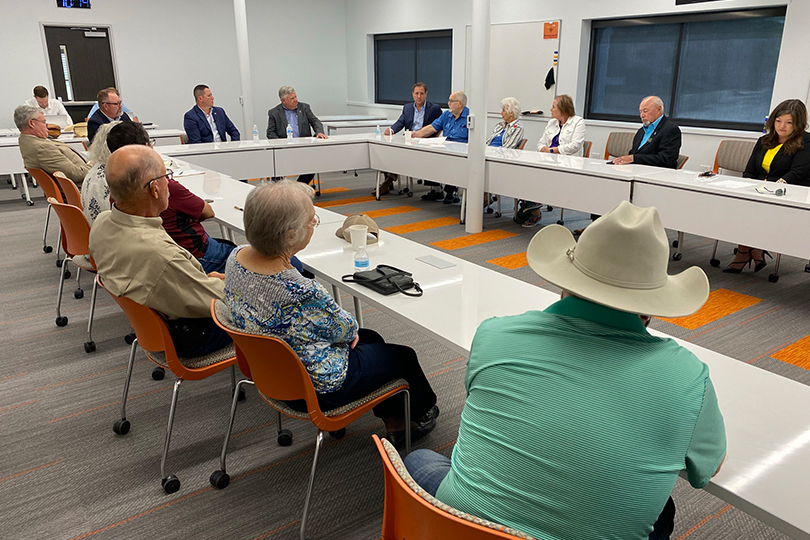By Jennifer Whitlock
Field Editor
Farmers, ranchers and small business owners are the backbone of America and a key economic driver. But current tax increase proposals in Congress could put that legacy at risk.
Those tax increases will not only decimate family farms, ranches and small businesses but also create an even wider divide between rural and urban populations, noted Congressman Tony Gonzales.
“Everything is at stake” for farmers and ranchers right now, Gonzales told the Texas Farm Bureau Radio Network.
“The impact of our local farms, ranches and small businesses on our country cannot be replaced,” he said. “Any type of tax increase threatens the livelihoods of rural Texans. For many folks, a tax increase isn’t just the difference between a few less dollars in their pockets every month.- It’s the difference between keeping their family farm or being forced to sell it.”
Forcing families to sell their properties through the elimination of step up in basis and taxing unrealized capital gains at death is inherently wrong, Gonzales told the crowd at a recent roundtable discussing Congressional tax increase proposals.
The proposed tax increases would help pay for the $3.5 trillion budget reconciliation package President Joe Biden has said is necessary to fight climate change, improve Americans’ quality of life and invest in future economic growth.
Despite assurances the recently-passed 2022 budget reconciliation deal will “prohibit new taxes on small businesses and family farms,” lawmakers have yet to release specific details on how they will accomplish this.
This leaves others in Congress, like Gonzales, leery of the claim.
“The bottom line is, the [federal government’s] spending is out of control. Nothing is free. At the end of the day, the check comes due,” he said. “And you’re talking about an astronomical amount that’s essentially all deficit spending. So that $3.5 trillion would result in $17 trillion in increasing the deficit.”
Where would that additional funding come from? The pockets of middle-class farmers and ranchers.
On paper, family farms and ranches may look like big business with huge revenue. But the reality is much different, as many constituents explained to Gonzales and other leaders in attendance at the Sept. 3 roundtable.
Most of the capital in a farm or ranch is tied up in land and equipment. When the current generation dies, they pass on land that’s often been held in the family for years. Losing the step up in basis—which allows the new generation of landowners to inherit the property at current fair market value without paying capital gains taxes—would be terrible for the farm. And the family.
Many inheritors would be forced to sell land or equipment to pay those capital gains taxes, Texas Farm Bureau (TFB) District 6 State Director Warren Cude noted.
It doesn’t stop with farmers and ranchers, either.
“It is incredibly important for the agricultural and business communities to highlight the devastating effects of tax increases,” Cude, a Fort Stockton rancher, said. “If negative tax proposals are enacted, many hardworking farm and ranch families and consumers will suffer the consequences.”
Increasing taxes on American farmers and ranchers puts the nation’s reliable and affordable domestic food supply in jeopardy and leaves the U.S. at the mercy of global trading partners. Political unrest or natural disasters thousands of miles from American shores could drive up food prices and availability.
“What this is about is folks being forced to sell their properties. Once these properties are gone, you can never bring them back,” Gonzales said. “And it impacts all of us. The last thing that any of us want to see are grocery store shelves barren because we don’t have enough meat and produce.”
TFB encourages farmers and ranchers to contact congressional leaders and urge them to oppose these taxes. Click here to contact your lawmakers today.


If this tax bill passes it will devastate the farmer and small rancher and small towns will not exist. It will flood the the real estate market with land for sale because the farming and ranching people will be able to stay on there land
Not good
Absolutely NOT good for farming and ranching individuals qand families!